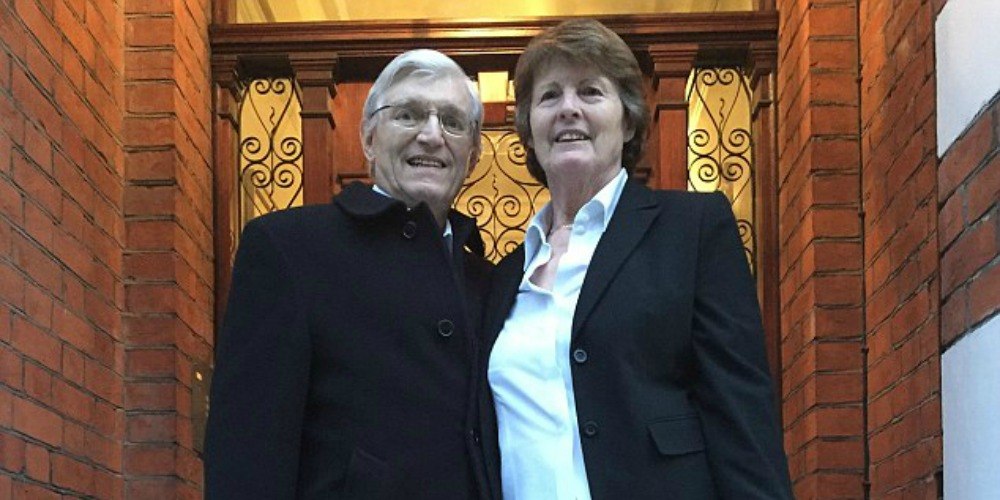Inoperable Liver Cancer Case Study
Mr. Spartaco Dusi’s ‘Inoperable’ Tumour Vanished After only 6 Treatments

Inoperable Liver Cancer Case Study – Background
The Daily Mail, featured the incredible story about one of our clients, Mr. Spartaco Dusi. His ‘inoperable’ tumour vanished after only 6 treatments, thanks to new cutting-edge treatments.
The article explains how Mr. Spartaco Dusi of Stockholm, Sweden, used the services of Alivia Swiss Health Management to wage war against his bile duct cancer diagnosis. It was Mr. Dusi’s son, Alessandro, who initiated contact with Alivia. Alessandro first wanted Alivia to determine whether international cancer surgeons would agree that his dad’s tumour was inoperable, as they had been told by the doctors in Sweden.
This is a complex case that is still ongoing and the full page article in the Mail on Sunday provided a high level overview of the processes and techniques used by Alivia’s team to manage complicated cases like the one of Mr. Dusi.
This case review is a rare glimpse into the complex and specialised world of international health management and the worldwide exclusive backstory to the journey travelled by Mr. Dusi so far.
What Alivia Did
To identify international leading specialists Alivia’s Personal Health Managers began the process of collecting Mr. Dusi’s diagnostic records, medical files and images.
Once the files had been collected, they were transferred to Alivia’s internal research team – the Medical Intelligence Unit (MIU).
The MIU reviewed the files and matched them with various sources of medical intelligence regarding the individual characteristics of Mr. Dusi’s tumour. Interestingly, they found that around 60% of articles published on surgery of bile duct tumours had been written by Japanese doctors.
Alivia identified and coordinated second opinions from nine separate gastrointestinal cancer surgeons; three in the US, including a Japanese surgeon practicing at Columbia Presbyterian in New York, two in the UK, one from Switzerland and three from Italy.
The experts had varying opinions on whether the tumour could be operated on and the MIU summarized and explained these to Alessandro and Mr. Dusi. Three of the nine specialists disagreed with the opinion from the Swedish doctors.
Unfortunately, prior to proceeding with surgery, a PET scan was taken which showed that the tumour had metastasized, and therefore surgery was ruled out. Mr. Dusi’s diagnosis was becoming more serious.
Science Fiction Like Treatments
Alivia works with partners specializing in molecular profiling of tumours and tumorgrafting (taking a piece of the patient’s tumour and growing it in mice).
These technologies can predict the likely success of many therapies, including single-agent and combination chemotherapy regimens, targeted biological drugs and antiangiogenics.
It is well known that the response rate of conventional cancer treatment is around 25%. However when personalised oncology treatments are used, including molecular profiling and tumorgrafting, it is not uncommon to achieve response rates of above 90%.
Taking Alivia’s advice, Mr. Dusi agreed to proceed with both molecular profiling and tumorgrafting.
While waiting for the molecular profiling results, Alivia identified and referred Mr. Dusi to a leading oncologist in London where he commenced chemotherapy.
After 10 days the molecular profiling results came back providing insight to which drugs would be most effective on Mr. Dusi’s individual tumour.
The process of testing multiple combinations of chemotherapy drugs in mice takes between 2-6 months and was in place to give Mr. Dusi an effective second line treatment schedule if it was needed at a later date. As soon as Alivia’s partner confirms that the tumour has successfully grown in the mice testing will commence. This provided a good opportunity to identify the best treatment if other treatments had failed by the time the mice were ready to be tested.
Effectively, the mice with Mr. Dusi’s cancer available for testing, serves as Avatars outside his body. Even if the initial treatment is successful, these Avatars may serve as “insurance” for later relapse of the disease.
During a period of eight weeks Mr. Dusi received six cycles of chemotherapy. During this time Alivia’s Personal Health Manager and Chief Medical Officer were following up with him on a 24/7 basis.
After 6 treatments, the patient had a new PET/CT scan. This time the tumours and metastasis observed 8 weeks earlier had been resolved. The cancer is probably still active, and Mr. Dusi is continuing with chemotherapy, but with a much lower dosage.
The Result
You are never as alone as you are when you are sick. The more serious the disease, the more important it is to get a second opinion. A second opinion can change a diagnosis or a treatment, but it can also confirm you are getting the best treatment.
This case illustrates how Alivia’s systematic search for relevant treatment and doctors in a short time enabled Mr. Dusi’s case to be presented to a number of world leading experts.
Alivia’s managed health care is about making diagnostics and treatments available otherwise not reachable to most patients. Alivia is not the one treating the patient. But this case illustrates the importance of having a facilitator helping out.
Mr. Dusi’s health is still being managed by Alivia, and together we are fighting for his life.

